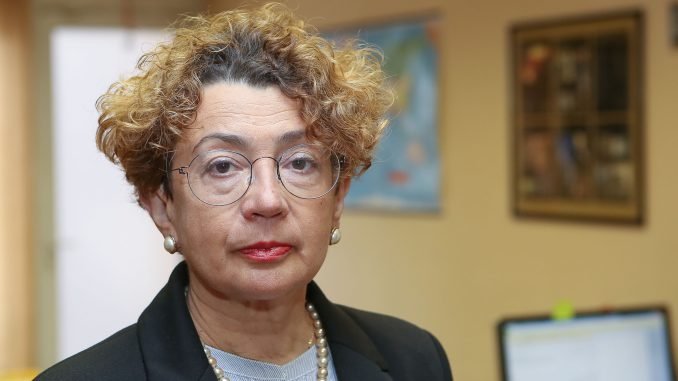
“According to data from Jewish historiography, about 3,000 Jewish activists of the right- and left-wing political spectrum, owners of large industrial companies and factories, were deported during the first wave of deportations in June of 1941 alone, in addition to 7,000 people deported over the first Soviet rule,” Kukliansky said at a solemn ceremony to mark the anniversary at the parliament on Tuesday.
“Sadly, the concept of a Jewish deportee is almost forgotten or ignored in today’s society of Lithuania, deportations are viewed as the tragedy of the Lithuanian nation, maybe this is the reason behind different restoration of rights of former Jewish deportees even in the laws of independent Lithuania. This is well illustrated by the laws of restitution of citizenship and rights to properties,” she emphasized.
Over past years, the Migration Department has refused to restore the Lithuanian citizenship for some Jews of Lithuanian origin based on the court practice that citizenship can only be restored for those who left Lithuania for political reasons, resistance to occupation or other persecution before it regained independence in 1990. Lithuanian authorities stress that Jews were not persecuted in the interwar period in independent Lithuania.
On June 14 of 1941, the Soviet administration started mass deportations of Lithuanian residents to Soviet labor camps and prisons. More than 275,000 Lithuanian residents were deported during the Soviet rule in 1940-1952.
After Lithuania regained independence in 1990, it has been commemorating June 14 as the Day of Mourning and Hope.

Be the first to comment